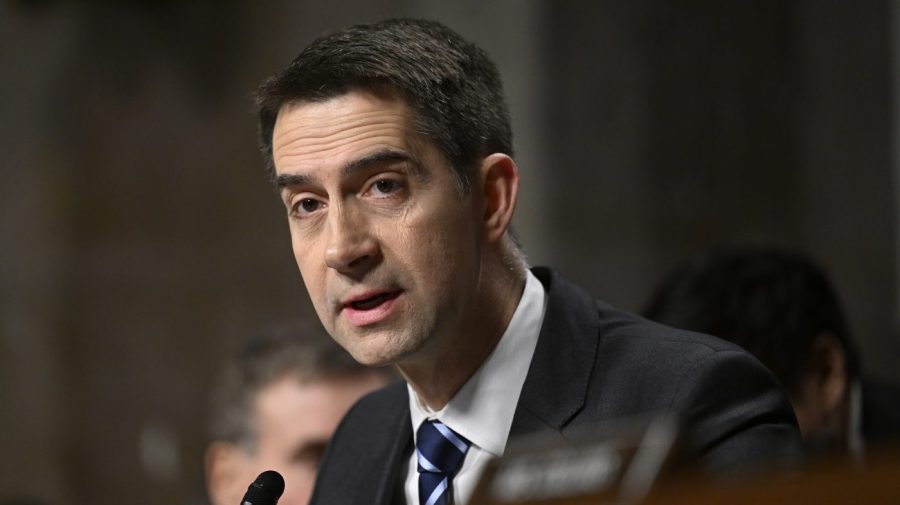
Sen. Tom Cotton (R-Ark.) criticized the ceasefire and hostage-release deal on Wednesday that mediators struck between Israel and Hamas, saying the only agreement should be Hamas’s “unconditional surrender” and return of all hostages.
His statement on the social media platform X came before official details of the agreement were unveiled and before both President Biden and President-elect Trump jockeyed for credit in striking the agreement.
“Why is lame duck Joe Biden trying to cram down a bad deal on Israel on his way out the door?” Cotton said in the post on Wednesday, shortly after reports surfaced that a deal had been struck.
“The only ‘deal’ should be unconditional surrender by Hamas—which is already nearly destroyed—and return of ALL hostages,” Cotton continued. “Instead, we hear reports that Biden is demanding that Israel withdraw from key terrain in Gaza, release dozens of hardened terrorists for every one hostage, and get back only SOME hostages?”
Cotton proposed an alternative arrangement, quoting Trump’s own threat to unleash hell if hostages weren’t released before he got into office.
“Here’s the ‘deal’ to offer Hamas and its patron, Iran,” Cotton said. “You have five days to release ALL the hostages or we ‘unleash hell.’”
Hours after Cotton’s statement on Wednesday, Trump took to his Truth Social platform to take credit for the deal.
“WE HAVE A DEAL FOR THE HOSTAGES IN THE MIDDLE EAST. THEY WILL BE RELEASED SHORTLY. THANK YOU!” Trump wrote, before President Biden spoke publicly about the ceasefire and hostage-release agreement.
The deal that was announced would bring relief to nearly two million Palestinians in the Gaza Strip and allow for the return to Israel of dozens of hostages held by Hamas since Oct. 7, 2023. The deal would also open the door for a possible end to all fighting in Gaza and for the return of all hostages.
The first phase of the complex deal would begin with a six-week ceasefire and for the U.S.-designated terrorist group to release 33 hostages, including two Americans, out of an estimated 94 people — both alive and dead — who have been held since Oct 7. Civilian women, women soldiers, children, the elderly and the sick are expected to be released in the first phase.
During this time, Israel would begin to withdraw its military from parts of the Gaza Strip described as “population centers,” and humanitarian aid would also flood the strip.
Negotiators from Israel and Hamas — mediated by the U.S., Egypt and Qatar — would use this time to work toward transitioning into a second phase, working out terms to extend the ceasefire permanently and end the war.
Biden, during remarks from the White House Wednesday, said that if negotiations to get to a second phase of the deal took longer than six-weeks, the ceasefire should be extended.
“Negotiations will go forward for as long as it takes,” Biden said.
When phase two begins, there would be an exchange for the remaining living hostages, to include Israeli soldiers and the men of military age. Hamas also holds a third Israeli-American, Edan Alexander, who was serving in the Israel Defense Forces when he was kidnapped on Oct. 7.
Israeli forces would withdraw from Gaza and the “temporary ceasefire will become permanent,” Biden said.
A third phase of the deal would include the release of the remains of hostages killed.
The contours of the deal are nearly identical to Biden’s May proposal to begin a ceasefire and lead to a pathway to end the war. That proposal was endorsed by the United Nations Security Council during a vote in June.
Israeli Prime Minister Benjamin Netanyahu accused Hamas on Thursday of reneging on parts of the deal, which had been expected to be implemented on Sunday, and said his cabinet would not convene until Hamas agrees to the whole deal.
A senior Hamas official, Izzat al-Rishq, said the group “is committed to the ceasefire agreement, which was announced by the mediators,” according to The Associated Press.

